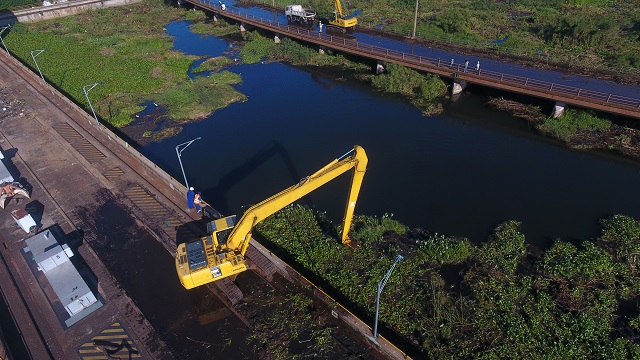
Government responses to climate crisis must be permanently changed after the coronavirus has been dealt with
COMMENT | Phoebe Atukunda | On 14th April 2020, Ugandans experienced a total black-out nationwide which the country’s electricity transmission company – UETCL – later revealed was caused by a “floating” island that clogged intake gates of Nalubaale, Bujagali and Kiira power dams.
President Museveni visited the site of the incident, and later warned people in his televised address on the COVID-19 pandemic, against cultivating on river banks and lake shores as their activities are a danger to the environment .
The president urged the public to stop destroying the physical features that are beneficial to the Country. The recent rise of Lake Victoria water levels has been attributed to effects of climate change caused by global warming due to harmful human activities against nature according to various environmental experts.
Climate change is an existing threat to humanity.Covid-19 quickly appeared and spread sending shockwaves to every country on the planet. The population realised the threat this virus posed and went into emergency mode, stocking up food stuffs, and hoarding essential items.
For the past two months, previous unknown phrases quickly became common vernacular – social distancing, flattening the curve and the lockdown culture. Governments have taken extreme measures to fight COVID-19 and its effects on the economies from border closures, stay home orders to providing stimulus packages in some countries to help save lives. The public is scared and largely supports government efforts to contain the virus and prevent infections.
When it comes to the climate change crisis, governments recognise the reality but only implement half measures or nothing at all. Although the coronavirus is acutely dangerous to humans and may kill a few thousands before a drug or vaccine is developed, climate change is an even a larger threat that will affect most of humanity.
Like many other countries, Uganda is highly vulnerable to climate change and variability. Its economy and the wellbeing of the people are tightly bound to climate. While coronavirus quickly appeared, its effects also occurred very quickly. On the other hand, climate change has been known for decades. Although its effects emerge slowly over years and appear distant, their existential risk to the planet is well documented.
COVID-19 has revealed what governments are capable of doing in a crisis. As Sir Michael Marmot, a professor of epidemiology and public health at University College London, rightly observed, government responses to climate crisis must be permanently changed after the coronavirus has been dealt with, as the current actions being taken to supress the virus spread has revealed what measures are possible in an emergency.
The urgency with which governments around the world have acted showed that responding to an emergency can be swift and decisive. COVID-19 crisis response details similar aspects with those required to reverse climate change crisis. A number of lessons from the global response to the coronavirus crisis can be used to reverse the looming climate crisis.
Firstly, there has been great emphasis on change in social behaviour with the introduction of what has been known as social distancing on top of washing hands and stay home orders. Governments can model measures to tackle climate crisis by way of enforcing behavior change in the way we deal with the environment. This can be adopted to prevent harmful human activities that threaten nature conservation. Our leaders at different levels need to look at climate change in more or less similar a way to the covid-19 crisis.
Secondly, the COVID-19 pandemic has led to a continuous and effective communication process to create awareness of its severity. Almost every country has created COVID-19 Task Forces to centralise responses and rally citizens against a common enemy. In the same way, emphasis should be put in ensuring that climate change information is effectively communicated at all levels.
It is therefore, imperative to take lessons from the response to COVID-19 in tackling climate change. If we wait, the impacts of climate change will worsen and our capacity to respond will be minimal and more difficult. There is no reason why countries cannot do the same with United Nations Framework Convention on Climate Change measures in dealing with climate change. Will countries wake up in time and defeat climate change? Once COVID-19 is finally dealt with, we need the same zeal we applied to contain its spread to deal with climate change.
******
 The writer is a Researcher with Advocates Coalition for Development and Environment (ACODE)
The writer is a Researcher with Advocates Coalition for Development and Environment (ACODE)
 The Independent Uganda: You get the Truth we Pay the Price
The Independent Uganda: You get the Truth we Pay the Price


